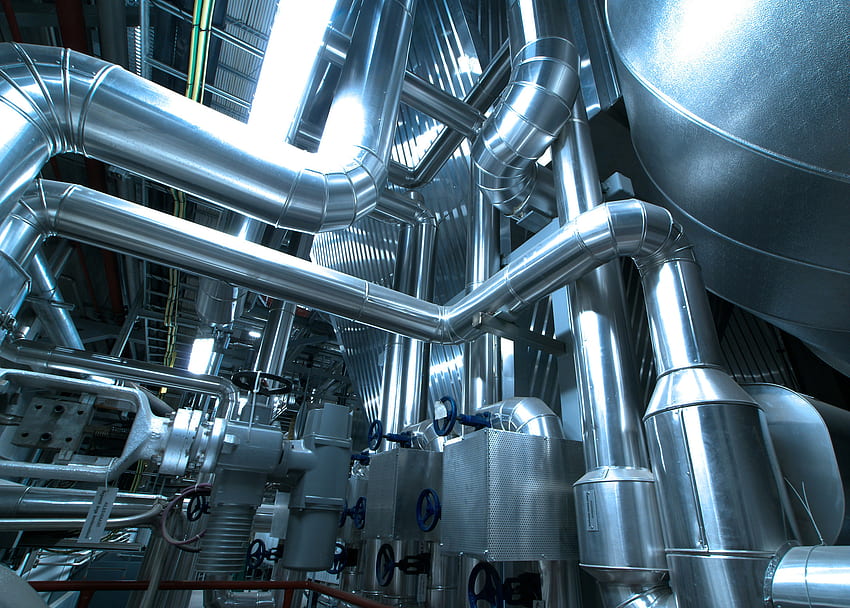Climate Control Chronicles: Mastering the Art of Heating and Air Conditioning
Climate Control Chronicles: Mastering the Art of Heating and Air Conditioning
Blog Article

In today's world, where comfort and energy efficiency go hand in hand, understanding heating and air conditioning has become essential for every homeowner. As the seasons change, the need for effective climate control becomes increasingly apparent. Whether it's the chill of winter that calls for a robust heating system or the sweltering summer sun that necessitates a reliable air conditioner, mastering this art can transform your living space into an oasis of comfort.
Heating and air conditioning systems are more than just luxuries; they are vital to creating a healthy and pleasant indoor environment. With numerous options available, each boasting its own set of features and benefits, making the right choice can feel overwhelming. Yet, by exploring the fundamentals of these systems and staying informed about the latest technologies, homeowners can not only enhance their comfort but also become wise stewards of energy, ultimately contributing to a more sustainable future.
Understanding HVAC Systems
Heating and air conditioning systems, commonly referred to as HVAC, are essential components of modern indoor environments. They provide comfort by regulating temperature, humidity, and air quality in residential and commercial spaces. HVAC systems consist of various elements including furnaces, air conditioners, heat pumps, ductwork, and thermostats, all working together to maintain optimal indoor conditions throughout the year.
The heating component typically involves furnaces and boilers that generate warmth during colder months. Furnaces use gas, oil, or electricity to heat air, which is then distributed throughout the space via ducts. Boilers, on the other hand, heat water to provide radiant heat or steam heat. Meanwhile, air conditioning systems function to cool indoor air by removing heat and humidity during the hotter months. They utilize a refrigerant that absorbs heat inside and releases it outside, keeping the indoor environment refreshingly cool.
Understanding the importance of regular maintenance for HVAC systems cannot be overstated. Routine checks and servicing can prevent unexpected breakdowns, enhance efficiency, and extend the lifespan of the equipment. Homeowners and business operators should prioritize changing air filters, cleaning coils, and scheduling professional inspections to ensure their heating and air conditioning systems operate at peak performance, ultimately leading to greater comfort and energy savings.
Energy Efficiency Tips
To ensure your heating and air conditioning systems operate efficiently, regular maintenance is key. This includes changing filters frequently, checking ducts for leaks, and scheduling annual professional inspections. A well-maintained system is not only more efficient but can also prolong the lifespan of your equipment, saving you money in the long run.
Another effective way to enhance energy efficiency is by investing in a programmable thermostat. This device allows you to set specific temperatures for different times of the day, ensuring that your home maintains comfort while minimizing energy use. By adjusting settings when you are away or asleep, you can significantly reduce your energy bills without sacrificing comfort.
Lastly, consider sealing windows and doors to prevent drafts. Good insulation can keep warm air in during the winter and block heat in the summer. Adding weatherstripping or using door sweeps can contribute significantly to your home’s overall efficiency. Together, these steps can help create a comfortable living environment while lowering your energy consumption.
Common Maintenance Practices
Get In Touch
Regular maintenance is essential for keeping heating and air conditioning systems running efficiently. One of the most important practices is changing or cleaning filters consistently. Clogged filters can restrict airflow, causing the system to work harder and consume more energy. Depending on the type of filter, it is advisable to check them monthly and replace or clean them at least every three months. This simple act can extend the life of the system and improve indoor air quality.
Another key maintenance task involves inspecting and cleaning the outdoor units. Over time, debris such as leaves, dirt, and twigs can accumulate around the condenser coils, affecting performance. It is crucial to clear any obstructions and ensure adequate airflow around the unit. Additionally, checking for any signs of rust or damage can prevent more significant issues later on. This proactive approach can enhance the efficiency of the air conditioning system and prevent costly repairs.
Finally, having a professional service the heating and air conditioning system annually is highly recommended. Technicians can perform comprehensive inspections and tune-ups, identifying potential problems before they escalate. They will check refrigerant levels, inspect electrical components, and ensure everything is operating within manufacturer specifications. This regular expert oversight ensures optimal performance throughout the year, contributing to energy savings and maintaining a comfortable environment in your home.
Report this page